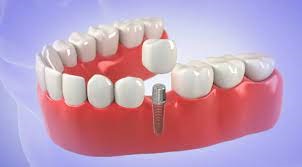
Introduction
Welcome to a discussion on the factors contributing to the longevity and success of dental implants. Dental implants have revolutionized tooth replacement solutions, offering a reliable and durable option for individuals with missing teeth. Understanding the key factors that influence the success of dental implants is essential for ensuring optimal outcomes and long-term oral health. Let’s explore the various factors that contribute to implant success and longevity for Dental Implants in Abu Dhabi.
Optimal Oral Health
Maintaining optimal oral hygiene is crucial for the success of dental implants. Poor oral hygiene can lead to peri-implantitis, a condition similar to gum disease that can compromise the stability of implants. Brushing twice a day, flossing daily, and attending regular dental check-ups are essential for preventing peri-implantitis and ensuring the long-term health of dental implants.
Healthy Lifestyle Habits
Lifestyle factors such as smoking and excessive alcohol consumption can negatively impact the success of dental implants. Smoking has been shown to impair healing and increase the risk of implant failure, while heavy alcohol consumption can compromise the body’s ability to heal properly. Adopting a healthy lifestyle that includes regular exercise, a balanced diet, and avoiding harmful habits can promote the longevity of dental implants.
Bone Quality and Quantity
The quality and quantity of the jawbone play a significant role in the success of dental implants. Sufficient bone density and volume are necessary to support the implant and withstand chewing forces. In cases where the jawbone is inadequate, bone grafting or sinus augmentation procedures may be required to enhance bone volume and density before implant placement.
Implant Placement and Technique
The skill and experience of the implant dentist and the technique used during implant placement are critical factors in implant success. Precise implant placement ensures proper alignment and stability, while minimizing the risk of complications such as nerve damage or sinus perforation. Utilizing advanced techniques such as guided implant surgery or computer-assisted implant placement can further enhance the accuracy and predictability of implant placement.
Implant Design and Surface Characteristics
The design and surface characteristics of dental implants can also influence their long-term success. Implants with bioactive surfaces or microtextured surfaces promote faster osseointegration and better bone integration, leading to improved implant stability and longevity. Additionally, advancements in implant design, such as tapered implants or wide-diameter implants, offer enhanced stability and support in compromised bone situations.
Regular Maintenance and Follow-up Care
Regular maintenance and follow-up care are essential for monitoring the health and stability of dental implants over time. Routine dental examinations, professional cleanings, and periodic radiographic evaluations allow dentists to detect any issues early and address them promptly. Timely intervention can help prevent complications and prolong the lifespan of dental implants.
Conclusion
The success and longevity of dental implants depend on a combination of factors, including optimal oral health, healthy lifestyle habits, bone quality and quantity, implant placement technique, implant design, and regular maintenance and follow-up care. By addressing these factors and working closely with a qualified implant dentist, patients can enjoy the benefits of dental implants for many years to come.


